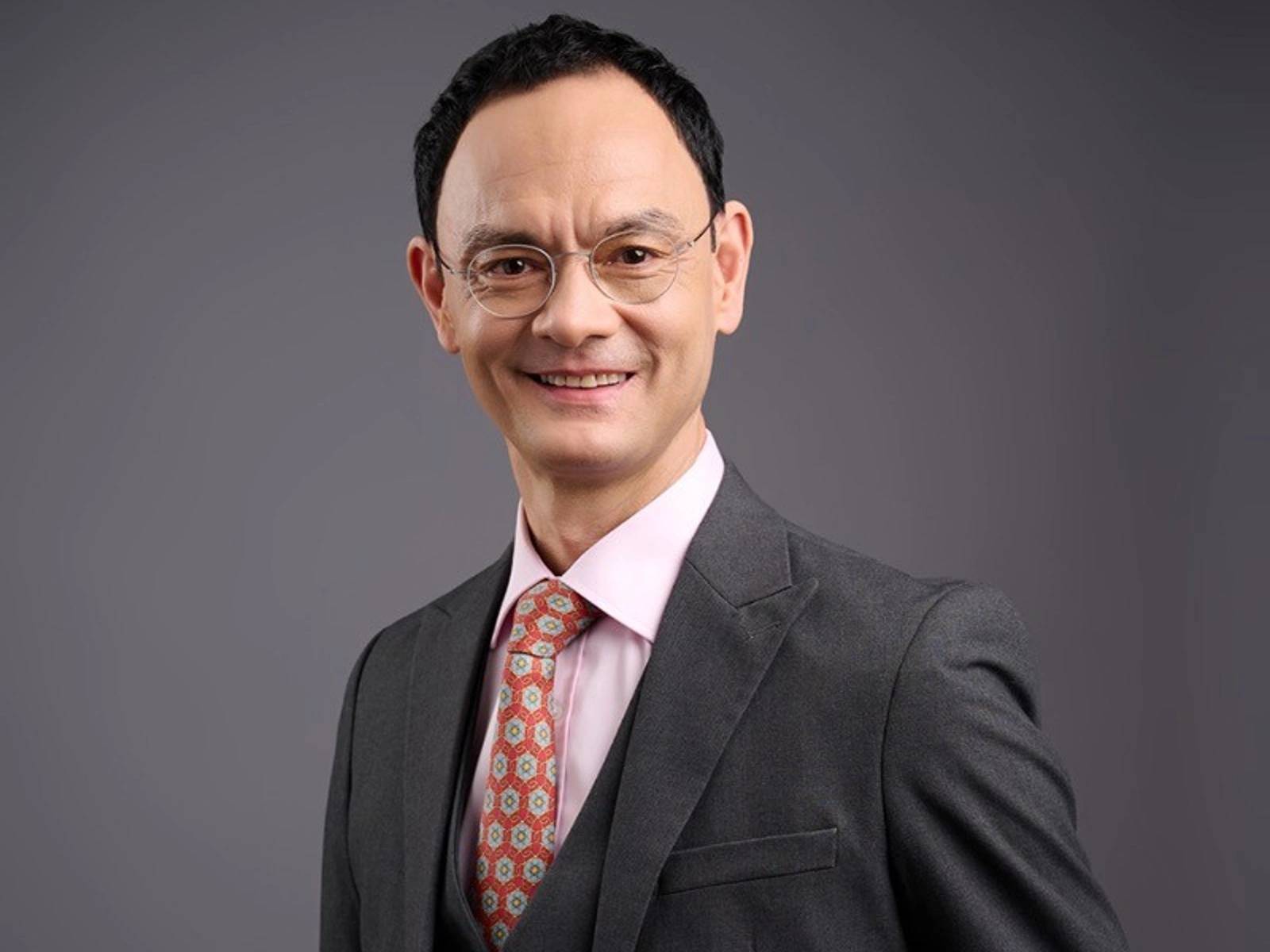Christopher Louis Tsu
**크리스토퍼 루이스 츠(Christopher Louis Tsu)**는 현재 Venom Foundation의 CEO로 재직 중인 기업가입니다. 37년이 넘는 경력을 통해 여러 스타트업을 설립했으며, 광범위한 제품의 개발 및 전 세계 배송에 기여했습니다. 그의 전문 분야에는 생명공학, 디지털 기술, 인공 지능, 블록체인이 포함됩니다. 츠는 영어와 프랑스어에 능통합니다. [1][2][4]
교육
츠는 리머릭 대학교에서 전자 공학 학사 학위를 받았으며, 고체 전자 공학을 전공했습니다. 또한 웨스트 런던 대학교에서 Chartered Business Diploma를 취득했으며, Chartered Institute of Marketing에서 추가 자격증을 보유하고 있습니다.[1][4]
경력
츠는 1986년 Apple Computer에서 개발 엔지니어로 경력을 시작했으며, 국제 소프트웨어 복제 시스템 설계에 참여했습니다. Apple에서 근무한 후 Texas Instruments에서 전자 설계 엔지니어로 근무하며 최초의 단일 셀 휴대폰 칩 출시에 기여했습니다.
1990년에는 Britcomp Inc.를 공동 설립하여 정부 및 군사 애플리케이션을 위한 소량, 고가치 ASIC 실리콘 하드웨어를 전문으로 취급했습니다. 이후 Access Devices Digital Ltd.를 공동 설립하여 위성 시스템을 통한 광대역 인터넷 및 디지털 TV 셋톱 박스 개발을 지원하여 수백만 개의 제품을 전 세계에 배송하는 데 기여했습니다.
2006년에는 의료 기술, 특히 치과 생명 공학 제품의 개발 및 특허에 주력하는 LIT Inc.를 설립했습니다. 이 제품들은 전 세계 수백만 명의 환자를 치료하는 데 사용되었습니다. 이 벤처와 함께 Falcon Technologies International LLC의 전략적 고문으로 재직하며 기술 이전 및 특허 관리에 참여했습니다.
최근에는 2018년에 DeepMoney.ai를 공동 설립하여 계산 신경 과학과 인공 지능을 통합하여 금융 시장을 위한 자율 거래 시스템을 개발했습니다. 이 회사는 암호화폐, 외환, 주식과 같은 분야에서 운영됩니다.
2022년에는 Venom Foundation에 최고 기술 책임자(CTO)로 합류했으며, 2023년에는 CEO로 임명되었습니다. Venom에서의 그의 업무는 블록체인 기술 및 디지털 자산 탐구와 관련됩니다.[1][2][4]
발명 및 특허
츠는 경력 전반에 걸쳐 다양한 기술 혁신에 참여했으며, 의료 및 디지털 분야 모두에서 특허를 보유하고 있습니다. 그의 생명 공학 분야의 업적에는 수백만 명의 환자 치료에 사용되는 치과 제품이 포함됩니다.
또한 디지털 기술에 대한 그의 기여에는 위성을 통한 광대역 인터넷 및 디지털 TV 셋톱 박스 시스템이 포함됩니다.[1][2][4]
블록체인 및 AI
츠는 블록체인 기술의 초기 참여자였으며, 인공 지능과 디지털 자산 통합에 참여해 왔습니다. DeepMoney.ai에서의 그의 업무는 AI 기반 금융 시스템에 초점을 맞추고 있으며, 암호화폐 및 주식을 포함한 여러 시장에 효율적인 솔루션을 제공하는 것을 목표로 합니다.[1][2][4]
인터뷰
현대 산업에서 블록체인의 역할
2024년 4월 15일에 Cointelegraph에 게재된 인터뷰에서 Venom Blockchain의 CEO인 크리스토퍼 루이스 츠는 다양한 산업에서 블록체인 기술의 잠재력에 대해 논의했습니다. 츠는 블록체인이 정부 및 기업 기관 모두로부터 신뢰, 투자 및 파트너십이 증가하면서 다양한 부문에 점점 더 통합되고 있다고 말했습니다.
츠는 Tether (USDT) 및 USD Coin (USDC)와 같은 USD 기반 스테이블코인의 성장이 분산 원장 기술의 광범위한 채택을 반영한다고 언급했습니다. 그는 또한 거래 마찰을 줄여 결제 시스템을 간소화하는 데 있어 자산 토큰화의 관련성을 언급했습니다.
Venom Blockchain의 기술적 특징 측면에서 츠는 Threaded Virtual Machine (TVM), Mesh Network 프로토콜 및 Dynamic Sharding을 포함한 여러 구성 요소를 설명했습니다. 이러한 요소는 확장 가능한 운영을 지원하여 플랫폼이 보안 및 효율성을 유지하면서 초당 최대 100,000건의 트랜잭션을 관리할 수 있도록 합니다. 계정 추상화 및 인터체인 통신에 대한 플랫폼의 초점은 Web3 애플리케이션에서 작업하는 개발자에게 더 많은 유연성을 제공하도록 설계되었습니다.
츠는 또한 Venom Blockchain이 비-Ethereum Virtual Machine (EVM) 블록체인으로서 트랜잭션을 비동기적으로 처리한다는 점을 강조했습니다. 츠에 따르면 이 인프라는 중앙 은행 디지털 통화(CBDC) 및 실물 자산의 토큰화와 같은 정부 관련 프로젝트에 대한 새로운 기회를 촉진할 수 있습니다.
츠는 앞으로 Venom Blockchain이 동아프리카 및 독립 국가 연합(CIS)과 같은 지역에서 기업-정부 파트너십을 추진하고 있다고 언급했습니다. 목표는 블록체인 기술을 활용하여 지역 경제 발전에 기여하는 것입니다. 또한 Venom은 생태계 내에서 혁신을 촉진하기 위해 200,000달러의 상금 풀을 가진 TokenForge 해커톤을 조직하고 있습니다.
츠는 블록체인 기술의 중요성이 커짐에 따라 향후 몇 년 동안 암호화폐 관련 프로젝트에 유리한 규제 환경을 조성하려는 국가 간의 경쟁이 심화될 가능성이 높다고 결론지었습니다. [3]
블록체인 채택 및 확장성에 대한 츠의 견해
크리스토퍼 루이스 츠는 2024년 7월 12일 YouTube 채널 "WazirX: Bitcoin & Cryptocurrency Exchange in India"에 출연하여 블록체인 채택, 확장성 및 분산 기술과 관련된 주제에 대해 논의했습니다. 대화는 확장성 및 트랜잭션 속도를 포함하여 블록체인 산업의 주요 문제를 해결하기 위한 Venom Foundation의 접근 방식에 초점을 맞췄습니다.
츠는 더 광범위한 블록체인 채택에 대한 두 가지 주요 과제인 트랜잭션 속도와 확장성을 개선하도록 설계된 블록체인 솔루션 개발에 대한 Venom Foundation의 초점을 설명했습니다. 그는 재단이 분산 애플리케이션의 기반 역할을 하고 효율적인 개발을 가능하게 하는 레이어 제로 블록체인을 사용한다고 강조했습니다.
기술적 측면 외에도 츠는 암호화폐 공간에서 초기 회의론에서 더 넓은 잠재력을 인식하게 된 자신의 경험을 설명했습니다. 그는 정확한 정보와 교육의 확산이 블록체인 기술에 대한 인식을 바꾸는 데 중요한 역할을 한다고 언급했습니다.
츠는 또한 공공 인프라에 블록체인 통합을 촉진하는 것을 목표로 하는 정부 기관과의 Venom Foundation의 파트너십에 대해 논의했습니다. 이러한 협력은 다양한 부문에서 블록체인 기술의 채택을 촉진하는 수단으로 자리매김하고 있습니다.
Venom 기술의 실제 적용 사례는 신용 카드와 유사하게 작동하지만 블록체인에 구축되어 즉시 트랜잭션을 가능하게 하는 Venom 카드입니다. 또한 츠는 상호 운용성 문제를 해결하면서 Venom이 서로 다른 블록체인 간의 통신을 향상시키기 위해 설계된 메시 네트워크를 개발하고 있다고 언급했습니다.
마지막으로 츠는 특히 개발 도상국에서 실물 자산의 토큰화 가능성에 대해 언급했습니다. 그는 이 프로세스가 투자 및 금융 포용에 대한 새로운 기회를 제공할 수 있다고 설명했습니다.[5]
